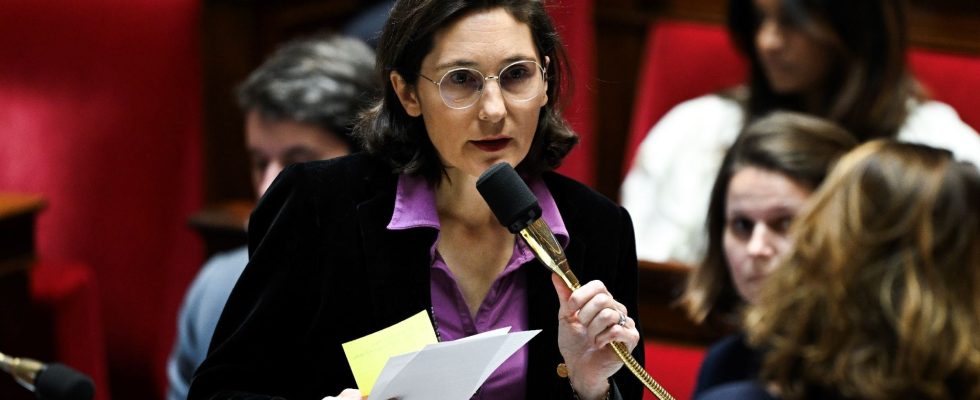It was an audition which took place at a very delicate time. Mired in controversies since her appointment on January 11, having to face a second teachers’ strike in less than a week, and targeted by incessant rumors of departure from the Ministry of National Education, Amélie Oudéa-Castéra has as best she can defended his project for the school before the Cultural Affairs and Education Committee of the National Assembly this Tuesday, February 6.
“The French expect a lot from their school. They are right” and “I want to answer them with as much clarity as possible, with energy”, assured this Tuesday afternoon the minister to the deputies, to whom she presented his “road map” for 2 hours and 15 minutes.
A way of projecting oneself into one’s functions while the appointment of the second half of the Attal government is still awaited, and the hypothesis of a return to rue de Grenelle by François Bayrou to replace her has been the subject of much speculation since its inception. released in the affair of the MoDem European parliamentary assistants. François Bayrou, “it’s a strong possibility”, estimated Tuesday to AFP a majority executive, who “does not see” how Amélie Oudéa-Castéra “can still have the necessary authority to carry out reforms”. “She got locked in,” adds another executive from the majority.
“War from another age”
While waiting to know her fate, the minister tried to reassure the deputies, in particular on the reforms of the “shock of knowledge”, announced by Gabriel Attal in December. With one measure in particular, widely rejected by the teaching unions: the establishment of level groups in French and mathematics in 6th and 5th grade classes. The creation of these groups is “a development made necessary by the deterioration of results” and to “restart the educational elevator”, argued the minister, who affirmed that the government did not want to “put an end to the single college” and “create level classes”.
Previously, the one who had created controversy with her declarations on “packages of unreplaced hours” in public schools had responded to the deputies that pitting public and private schools against each other was a “war from another age”. “The school war, it is you who are reviving it,” she said to PS deputy Arthur Delaporte, to the heckling of certain deputies shouting “François Bayrou”.
Pinned for having educated her children in the conservative private institution Stanislas, Amélie Oudéa-Castéra also promised in committee a working group “to ensure full, complete and effective application” of secularism in private establishments.
“The clash of knowledge has ignited the powder”
On the gridiron in the Assembly, the minister also had to face a new teachers’ strike on Tuesday, after a day of action which mobilized at least one teacher in five on February 1. This Tuesday, according to the ministry, 3.2% of staff were on strike at all levels, and 9.52% in colleges. The Snes-FSU union, the main union in middle and high schools, estimated the rate of teachers on strike in middle schools at 40%.
This union had called, with the CGT and SUD, for this new day of mobilization to defend wages and oppose educational policy at the college. In their sights: the application for the next school year of the “shock of knowledge” reforms, including level groups. In Paris, a few hundred people marched in the afternoon towards the ministry. “The clash of knowledge ignited the powder,” Michaël Marcilloux, co-secretary general of the CGT Educ’action, explained to AFP. “We refuse to sort our students, to stigmatize them,” testified Monia, French teacher at Sonia-Delaunay college in Grigny (Essonne). There were around 450 in Lyon, 200 in Lille and Marseille, according to the authorities, or even around a hundred in Toulouse according to AFP.
More broadly, the unions Sud Education, Unsa Education, FSU, Sgen-CFDT and CGT Educ’action called for a “week of actions from February 5 to 9” to “defend public schools”, “demand the opening immediate discussions on salaries” and “the abandonment of ‘knowledge shock’ measures”. For Amélie Oudéa-Castéra, François Bayrou or another, restoring trust with teachers promises to be a very complex ordeal.
